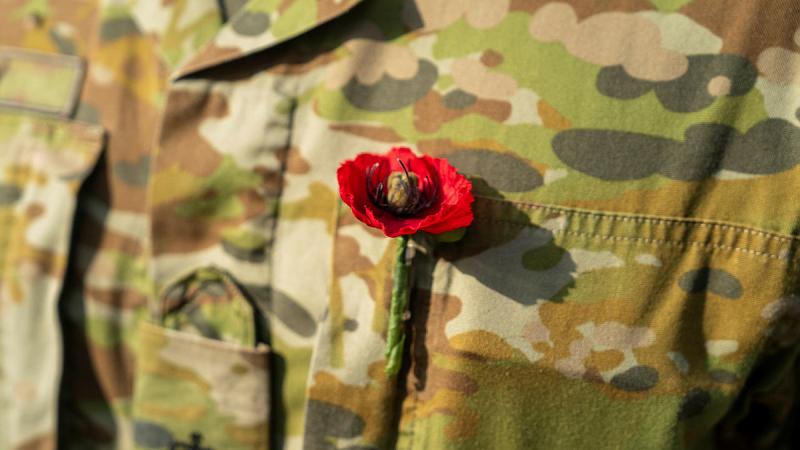The Human Rights Council this afternoon held its annual high-level panel discussion on human rights mainstreaming. The theme of this year’s panel was “A reflection on five years of the United Nations Youth Strategy (Youth 2030): mapping a blueprint for the next steps”.
Addressing the panel, Volker Türk, United Nations High Commissioner for Human Rights, said some institutions continued to engage with young people in a superficial, almost tokenistic way. Even though overall young people had never been more educated or more connected, they continued to face significant obstacles to achieving their full potential – as well as discrimination that blocked their access to many human rights. By fully implementing Youth 2030, the international community could ensure that this space was opened, counter pervasive discrimination, and ensure that people and societies were able to realise their full potential.
Jayantha Wickramanayake, Envoy of the Secretary-General on Youth, said young people faced numerous challenges in exercising their human rights which should be protected and promoted. The Human Rights Council should consider methods of improving and institutionalising the participation of youth in its work in a permanent way. It was time to review the implementation of Youth 2030 and update the strategy to make it fit for the present and the future as needed.
Panellists then took the floor, beginning with Diene Keita, Assistant Secretary-General and Deputy Executive Director of the United Nations Population Fund, who said that in order to make progress towards global aspirations, it was important to fulfil commitments towards young people. As the world celebrated the seventy-fifth anniversary of the Universal Declaration of Human Rights, it was more important than ever to raise the vulnerable voices among the youth.
Gilbert Houngbo, Director-General of the International Labour Organization, said today, 282 million youth were not in employment, education, or training. Unless these vulnerabilities were addressed and unless the mental wellbeing of young people was protected, there could be a protracted youth employment crisis.
Young people must be aware of their rights and must be surrounded by the institutions that protected them.
Ana Luiza Thompson-Flores, Director of the United Nations Educational, Scientific and Cultural Organization Liaison Office in Geneva, said that the United Nations Educational, Scientific and Cultural Organization was working with its youth climate networks on new solutions for the planet. As the international community looked ahead, it must reinforce tailored approaches to realise the rights of young people, staying away from amalgamations that were blind to diverse identities, needs and aspirations.
Christine Salloum, Representative of the International Coordination Meeting of Youth Organizations within the High-level Steering Committee of the United Nations Youth Strategy, said that the recognition of the value of empowering youth was unavoidable. This implied including them in the decision-making process and trusting in their abilities. Assessing the challenges closely would help the United Nations build bridges to work in partnership with youth and assist them in actively participating in the development process.
In the discussion, speakers said that today young people were facing multiple challenges, exacerbated by the COVID-19 pandemic. There was a need to strengthen the partnership with young persons to achieve positive transformative change. Notwithstanding these challenges, young people were important agents of change, with enormous capacity to change the world for the better, and yet, globally, they faced enormous challenges to achieving their human rights. The United Nations had an obligation to provide a safe future, and in order to make progress in these areas, the United Nations Youth Strategy was a positive step to provide means to allow young people to participate in decision-making for their future.
Some speakers noted that efforts must be strengthened in existing initiatives to ensure that young people were included in decision-making steps at all levels, including politics, ensuring that their fundamental freedoms and human rights were fully implemented and recognised. The progress made in the five-year implementation of the United Nations Youth 2030 Strategy was acknowledged. However, there were still areas for improvement to ensure that policies, processes, and platforms for meaningful youth engagement were in place across the United Nations system.
Speaking in the panel discussion were the following countries: South Africa; Cabo Verde on behalf of the community of Portuguese-speaking countries; Uzbekistan on behalf of a group of countries; Lithuania; European Union on behalf of a group of countries; Qatar on behalf of a group of Arab States; El Salvador on behalf of a group of countries; Netherlands; Qatar; Nepal; United Nations Women; Niger; Jamaica; Malawi; Burkina Faso; Food and Agricultural Organization of the United Nations; Viet Nam; Tunisia; Thailand; Tanzania; Romania; Maldives; Mauritius; and Algeria.
Also speaking were the following non-governmental organizations: World Vision International; Instituto Internazionale Maria Ausiliatrice; Youth Parliament for the Sustainable Development Goals; European Youth Forum; and Réseau Unité pour le Développement de Mauritanie.
The Council will next meet at 9 a.m. on Tuesday, 28 February, when it will hold its biennial high-level panel discussion on the question of the death penalty, after which it will continue with the high-level segment.
Keynote Opening Statements
VOLKER TÜRK, United Nations High Commissioner for Human Rights, said in countless surveys and interviews, the topics at the forefront of young people’s concerns were human rights and climate change. This demonstrated the power and relevance of human rights – the principles that ensured justice and fairness, and also indicated that taken as a whole, young people were deep-thinking and far-sighted – and that all would do well to listen to, and take on board, their ideas. Five years ago, the United Nations Youth Strategy, Youth 2030, was adopted to step up efforts to work with and for young people throughout the United Nations. Since, the United Nations Youth Office had been established, the inclusion of human rights as a priority area of the Youth Strategy had provided a clear framework for action — with concrete benchmarks across all areas of human rights, development, peace and justice – including climate justice. Youth engagement would also be central to the Human Rights 75 initiative.
There had been progress, Mr. Türk said. Still, some institutions continued to engage with young people in a superficial, almost tokenistic way. They may have formal structures that acknowledged the importance of young people’s views, but they were unlikely to seek out voices that were diverse or unfamiliar – and even less likely to act on what they said. And more broadly, even though overall young people had never been more educated or more connected, they continued to face significant obstacles to achieving their full potential – as well as discrimination that blocked their access to many human rights. In many countries, severe restrictions on civic freedoms also alienated young people from the structures that were supposed to represent them.
By fully implementing Youth 2030, the international community could ensure that this space was opened, counter pervasive discrimination, and ensure that people and societies were able to realise their full potential. The Office of the High Commissioner would continue to mainstream youth rights, and to assist Member States to realise youth rights in laws, policies, and programmes. Young people in every part of the world were the drivers of social change, the spirit of resilience, the genius of innovation, and the strongest seekers of solutions for the future of humanity, but they also had rights today, and a great deal remained to be done to realise them.
JAYATHMA WICKRAMANAYAKE, Envoy of the Secretary-General on Youth, said young people faced numerous challenges in exercising their human rights which should be protected and promoted. The establishment of the new United Nations Youth Office was an important step in this regard. As of today, 130 United Nations Country Teams and 51 United Nations entities had participated in the Youth 2030 implementation. Foundations for system-wide implementation were in place. The Secretary-General’s Call to Action on Human Rights and his report on Our Common Agenda were a statement of solidarity with current and future generations. The Secretary-General had tasked her to prepare recommendations in consultation with the world’s young people for more meaningful youth engagement. She hoped these recommendations would be of inspiration to the United Nations system at large, and urged the Human Rights Council to consider methods of improving and institutionalising the participation of youth in its work in a permanent way.
Ms. Wickramanayake said it was time to review the implementation of Youth 2030 and update the strategy to make it fit for the present and the future as needed. She hoped the next phase of Youth 2030 implementation would see increased accountability towards young people and for more parts of the United Nations system to engage strategically with the strategy. One immediate step could be to ensure recurring briefings on the progress of implementation to the Human Rights Council. She asked States to consider how to ensure the mainstreaming of youth rights into their existing work, in order to address the human rights violations and concerns that specifically affected youth populations. They should also consider how to guarantee the continuous participation of diverse groups of young people, especially young women, indigenous youth, youth in rural communities, youth with disabilities, lesbian, gay, bisexual, transgender, intersex and queer youth, youth without access to technology, and others, to ensure that this mainstreaming process happened together with young people, and truly reflected their needs?
Statements by the Panellists
DIENE KEITA, Assistant Secretary General and Deputy Executive Director of the United Nations Populations Fund, said to make progress towards global aspirations, it was important to fulfil commitments towards young people. The United Nations Population Fund believed in young people in all their diversity as fully fledged rights holders. Every young person was entitled to a healthy, safe and fulfilling life. Partnering with young people could drive positive economic social development in their communities. In 2018, the United Nations launched the Youth 2030 Strategy. Five years into the implementation of this strategy, it continued to gain momentum. Strategies and frameworks remained words on the ground. The meaningful partnerships developed by the United Nations Population Fund helped to promote social cohesion. The United Nations Population Fund worked to co-chair the global coalition on youth, peace and security. The engagement of youth activists was promoted, and youth-led organizations had been supported, opening their doors to participation on the international stage.
Civic space was shrinking, said Ms. Keita. More needed to be done to care for young people’s wellbeing. The Secretary-General and Our Common Agenda called on the international community to focus on young people. Young people were getting more seats at the table to discuss the youth perspective. However, they needed to be involved in discussions. While a youth forum already existed in New York, a similar pillar in Geneva could be considered. To achieve a world where 8 billion people could prosper, there needed to be cooperation at all levels. As the world celebrated the seventy-fifth anniversary of the Universal Declaration of Human Rights, it was more important than ever to raise the vulnerable voices among the youth.
GILBERT HOUNGBO, Director-General of the International Labour Organization, said today, 282 million youth were not in employment, education, or training. Most of them were young women who were three times more likely than young men to be neither employed nor in school. Yet having a job did not always equal prosperity. Young workers were more likely to be in temporary jobs or in jobs without a written contract. More than three out of four were in the informal economy, while one in three was working yet living in poverty, with little or no access to protection, rights and voice representation. Unemployment, inactivity and insecure work could have long-lasting “scarring effects” in career paths and future earnings of youth.
Unless these vulnerabilities were addressed and unless the mental wellbeing of young people was protected, there could be a protracted youth employment crisis.
Efforts, both individually and as partners in the implementation of the 2030 Agenda and the United Nations Youth Strategy, must – above all – protect the rights of those whom the international system was serving. There was plenty of evidence that improving working conditions could go hand in hand with increased productivity. The International Labour Standards enabled an environment in which decent jobs were created and work was performed in conditions of freedom, safety and dignity. This was crucial to young people today and tomorrow, as they navigated increasingly complex labour markets. Young people must be aware of their rights and surrounded by the institutions that protected them, to which effect the international community should uphold and promote the application of the International Labour Standards. The international community must ensure that its actions were rights-based and strengthened youth voices in key policy making processes and in social dialogue – and that included through support for young people’s participation and their voice in trade unions and employers’ organizations.
ANA LUIZA THOMPSON-FLORES, Director of the United Nations Educational, Scientific and Cultural Organization Liaison Office in Geneva, said five years into the United Nations Youth Strategy, the international community had many reasons to rejoice about what it had achieved and to reflect on strengthening actions. Efforts had been conditioned by an unprecedented pandemic and a worsening state of the world – from the climate crisis to conflicts, divisions, misinformation and populism, shrinking civic space, and regressions in women’s rights. These had had a deep impact on young people. The United Nations was delivering on the Strategy’spriority areas. From education to employment, rights, health, and peacebuilding, the system had deployed relevant responses, together, acting on the conviction that the engagement of young people was essential in and through all of the United Nations Educational, Scientific and Cultural Organization’s fields of action. The Organization was working with its youth climate networks on new solutions for the planet. Yet, more efforts were needed on the Strategy’s foundational areas, particularly on youth knowledge and engagement to achieve tangible policy impact.
The international community should continue investing in youth research so that young people defined their solutions, placing research at the core of policy processes and all actions. Youth knowledge-production for policy processes was also underway through national and regional research initiatives. United Nations entities and Member States still needed to reinforce capacities to dialogue and work with young people in policies and programming, in a free, active, and meaningful way. The United Nations Educational, Scientific and Cultural Organization had been doing so since 2017, and would soon launch an innovative toolkit for national stakeholders. Only by changing institutional cultures would the world be able to truly place young people at the core of all actions. As the international community looked ahead, it must reinforce tailored approaches to realise the rights of young people, staying away from amalgamations that were blind to diverse identities, needs and aspirations. The world needed to connect better with youth in promoting human rights and anti-discrimination.
CHRISTINE SALLOUM, Representative of the International Coordination Meeting of Youth Organizations within the High-level Steering Committee of the United Nations Youth Strategy, said that for young people to be accountable and take responsibility towards society meant that one must exercise the right to be part of the decision-making process, to work in partnership with decision-makers and boards and be fully engaged. The recognition of the value of empowering youth was unavoidable. This implied including them in the decision-making process and trusting in their abilities. Assessing the challenges closely would help the United Nations build bridges to work in partnership with youth and assist them in actively participating in the development process.
Meaningful participation was where young people were not considered beneficiaries but active participants and implementing partners. The definition of young people comprised all youth — young women, young people belonging to minority groups, refugees, stateless, and migrants. With the support of many youth across the world today, the United Nations should prioritise the following: continuously encourage meaningful youth participation to bridge the gap between young people and decision-makers; establish spaces and making them accessible for young people and youth organizations to understand the perspective and challenges of young people; highlight the youth accountability experiences to build stronger systems for decision-making; promote equal and equitable access to funding by youth organizations to build youth capacities; and promote youth rights to ensure meaningful participation across all United Nations systems. More youth should have the opportunity to participate in the Human Rights Council’s processes and mechanisms.
Discussion
Speakers then took the floor to address the panel, saying, among other things, that today young people were facing multiple challenges, exacerbated by the COVID-19 pandemic that had disproportionally affected youth and reversed progress towards achieving the 2030 Sustainable Development Goals. At a time marked by multiple challenges disproportionately impacting young persons, especially young women and girls, there was a need to strengthen the partnership with young persons to achieve positive transformative change. Empowering young persons, including those in vulnerable situations, engaging for and with them, was essential to build stronger, more legitimate, sustainable, inclusive, peaceful and democratic societies, where human rights and the rule of law were respected, and the interests of future generations were taken into account.
Notwithstanding these challenges, speakers said that young people were important agents of change. Young people had enormous capacity to change the world for the better, and yet, globally, they faced enormous challenges to achieving their human rights. The United Nations had an obligation to provide a safe future, and in order to make progress in these areas, the United Nations Youth Strategy was a positive step to provide means to allow young people to participate in decision-making for their future. For the further promotion of the full, equal and meaningful participation of young persons, including girls and young women, young persons in vulnerable situations, and youth organizations, in decision-making at all levels, there was a need to enhance the protection of young activists and human rights defenders across the world. Only by engaging and working for and with youth, supporting them in standing up for their human rights and creating the conditions allowing them to play an active role, could the world achieve enduring peace, security, justice, climate resilience, and sustainable development for all.
Efforts must be strengthened in existing initiatives to ensure that young people were included in decision-making steps at all levels, including politics, ensuring that their fundamental freedoms and human rights were fully implemented and recognised. The voices of youth must be included in all policies and multilateral fora in an effective and meaningful manner, and young people should be given the opportunity to speak out about their own concerns, wishes and plans. They could form the bridge between the present and the future. Intergenerational dialogue was essential to ensure the sustainability of human rights, and to also advance the inclusion and consideration of generations still to come. The progress made in the five-year implementation of the United Nations Youth 2030 Strategy was acknowledged. However, there were still areas for improvement to ensure that policies, processes, and platforms for meaningful youth engagement were in place across the United Nations system.
The outcome of human rights mainstreaming was planned and preventative measures ensured the continuous promotion and protection of human rights. Youth empowerment and education were the most powerful tools to build a society ensuring human rights for all, and the voices of children and youth were critical in this effort to build a society fit for all, with economic empowerment and involvement for all. Young people needed to also play their role in development, which meant providing them with favourable conditions, protecting their economic, social and cultural rights and civil and political rights, giving them the possibility to fully benefit from their potential, and making sure that they were involved in society, whilst being protected from extremism. Youth were not only the future of the world – they were also a reflection of the future and of the past.
The United Nations system should remain committed to take joint actions to advance the rights of future generations, including with regard to climate action, in line with the Secretary-General’s Call to Action. Youth education on environment related issues and youth engagement with climate change and environmental decision-making processes could play an essential role in building inclusive and peaceful societies. Mapping a blueprint for the next steps would require articulated, inclusive and tailored measures in education, job creation, technology and climate change, aiming at cultivating youth potential and increasing their sense of responsibility.
Concluding Remarks
DIENE KEITA, Assistant Secretary-General and Deputy Executive Director of the United Nations Population Fund, thanked the President for the leadership, Member States for their support to young people’s rights and agency, and donor countries for their strong partnership with the Fund on the ground. Ahead of the Sustainable Development Goals Summit and the Summit of the Future, the Fund looked forward to reinforcing its ongoing partnerships.
SANGHEON LEE, Director of the Employment Policy Department at the International Labour Organization,thanked all the panel members for the rich discussion. The discussion today had confirmed that a deficit in youth rights would have large economic consequences over a longer period. When young people were denied opportunities, they were more likely to be unemployed and earn less over their lives. Investing in youth was one of the best investments that society could make. Skills and trainings needed to be invested in and jobs needed to be created. Youth needed to be engaged in important policy decisions. Mr. Lee confirmed the commitment of the International Labour Organization in youth engagement strategies.
ANA LUIZA THOMPSON-FLORES, Director of the United Nations Educational, Scientific and Cultural Organization Liaison Office in Geneva, said that working together to revisit policies and programmes through a whole of society approach was essential to addressing the multiple impacts of crises on youth. It was important that the United Nations Educational, Scientific and Cultural Organization participated in the process, as it could mobilise a multidisciplinary approach, considering its mandate. Both the foundational and priority areas of Youth 2030 remained relevant. Additional issues had arisen more prominently, including after the pandemic, like the need to address the digital divide, particularly in the field of education. Youth should have a leadership role in the conversation.
CHRISTINE SALLOUM, Representative of the International Coordination Meeting of Youth Organizations within the High-level Steering Committee of the United Nations Youth Strategy, encouraged the presence of young people in future sessions of the Council. She was happy to hear speakers highlight the importance of youth participation at all levels and fields. In today’s session, youth were able to express themselves from all around the globe, on many challenging topics. It was heartening to know that the organizations were aware of the challenges being faced by youth.








